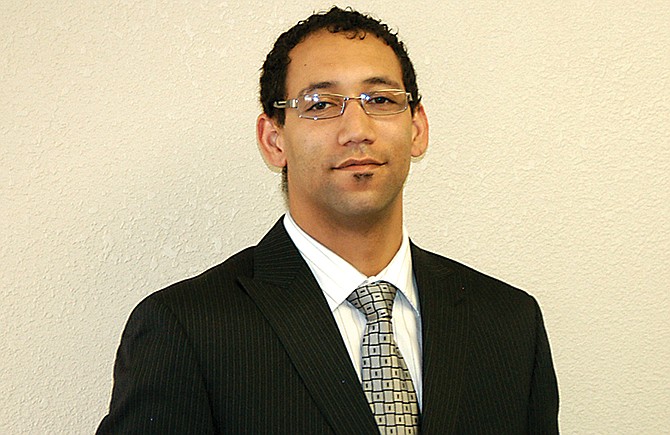State Attorney General Josh Hawley's staff wants the Missouri Court of Appeals' Eastern District to rehear its arguments in the Shayne Healea case, or to transfer the case to the state Supreme Court.
Healea, Moniteau County's prosecuting attorney, faces five criminal charges filed by a Boone County grand jury after an October 2014 accident in the parking lot behind Addison's Restaurant in Columbia.
He's charged with leaving the scene of an accident where there was an injury or property damage, and with four counts of second-degree assault for operating a vehicle while intoxicated, resulting in an injury.
The attorney general's office was appointed as special prosecutor in 2014.
Healea's trial is currently set for January in Shelbyville, on a change of venue from Boone County.
However, the trial has been delayed while Healea's attorney, Shane Farrow, of Jefferson City, has argued the case should be dropped, accusing Columbia police of violating Healea's U.S. Constitutional Sixth Amendment right to have a confidential discussion with his attorney.
Farrow said police recorded both sides of that conversation while Healea was in a police holding cell after he was arrested.
Part of Farrow's complaint was that Columbia police gave a copy of the recording to the attorney general's office, and they had it at the time they won the grand jury indictments.
Shelby County Circuit Judge Frederick (Rick) Tucker appointed retired Judge Hadley Grimm as a "special master" to review Farrow's arguments, and Grimm issued a report in December that, although Healea's rights may have been violated, there still could be a trial.
Three weeks ago, a three-judge Eastern District panel also ruled the trial could move forward but, among other things, ordered Tucker to replace the attorney general's office as the special prosecutor.
Last week, assistant attorneys general Darrell Moore and Gregory Goodwin filed dual motions for the appeals court to reconsider the case or transfer it to the Supreme Court.
"The (appeals court) panel's opinion overlooked three material matters of fact and misinterpreted two material matters of law," Moore and Goodwin wrote in their 10-page motion for rehearing.
The rehearing motion said the appeals court "overlooked" some facts, including:
The attorney general's office "was unaware that it possessed a copy of Healea's conversation with his attorney until October 2016," because the disk containing the conversation was labeled "Building Video Copy #1."
The attorney general's office "produced its copy of Healea's conversation during discovery in 2014."
The attorney general always has taken the position that no one listened to the recording, so it wasn't used in seeking the charges or in planning the state's case against Healea.
The special master's report does not support a finding of an appearance of impropriety that should result in the attorney general's office being removed as special prosecutor.
However, the appeals court ruled June 6 that having the recording gave an "appearance of impropriety."
The motion said the appeals court panel failed "to identify facts that would dispel any appearance of impropriety" and improperly reviewed Tucker's handling of the case at the trial court level.
Farrow on Thursday declined to provide a comment for this article, noting he normally doesn't "comment on pending litigation."
He also had not filed a response to the attorney general's motion - under the rules, he can't unless the appeals court requests a comment, and no request is listed in the court's case docket.
In the motion for rehearing, and in the separate motion to transfer the case to the Supreme Court, Moore and Goodwin said the appeals court opinion raises new legal issues if the attorney general's office is removed from the case.
First, they noted, the Supreme Court in a 2015 case said there should have been a determination of the attorney general's ability to separate the lawyers handling Healea's case from other lawyers in the office, rather than ordering the entire office be "removed from a criminal prosecution."
Perhaps more importantly, the attorney general's office wrote in its motion to transfer the case to the Supreme Court, allowing the appeals court's disqualification order "will have a far-reaching impact on this case and many other cases," because "Missouri statute requires the office to represent the state's interests on direct appeal from a felony conviction" as well as "to represent the State's interests in a post-conviction relief appeal."
Should Healea be convicted in a trial, but refuse to leave office, the motion noted, the appeals court order to disqualify the attorney general's office "would create an unresolvable crisis. The Attorney General is authorized to file a petition in Quo Warranto to remove an elected official who refused to vacate office after receiving a felony conviction," but would be unable to do so under the appeals court order.
The court's case docket shows no timeline set for acting on either motion.

